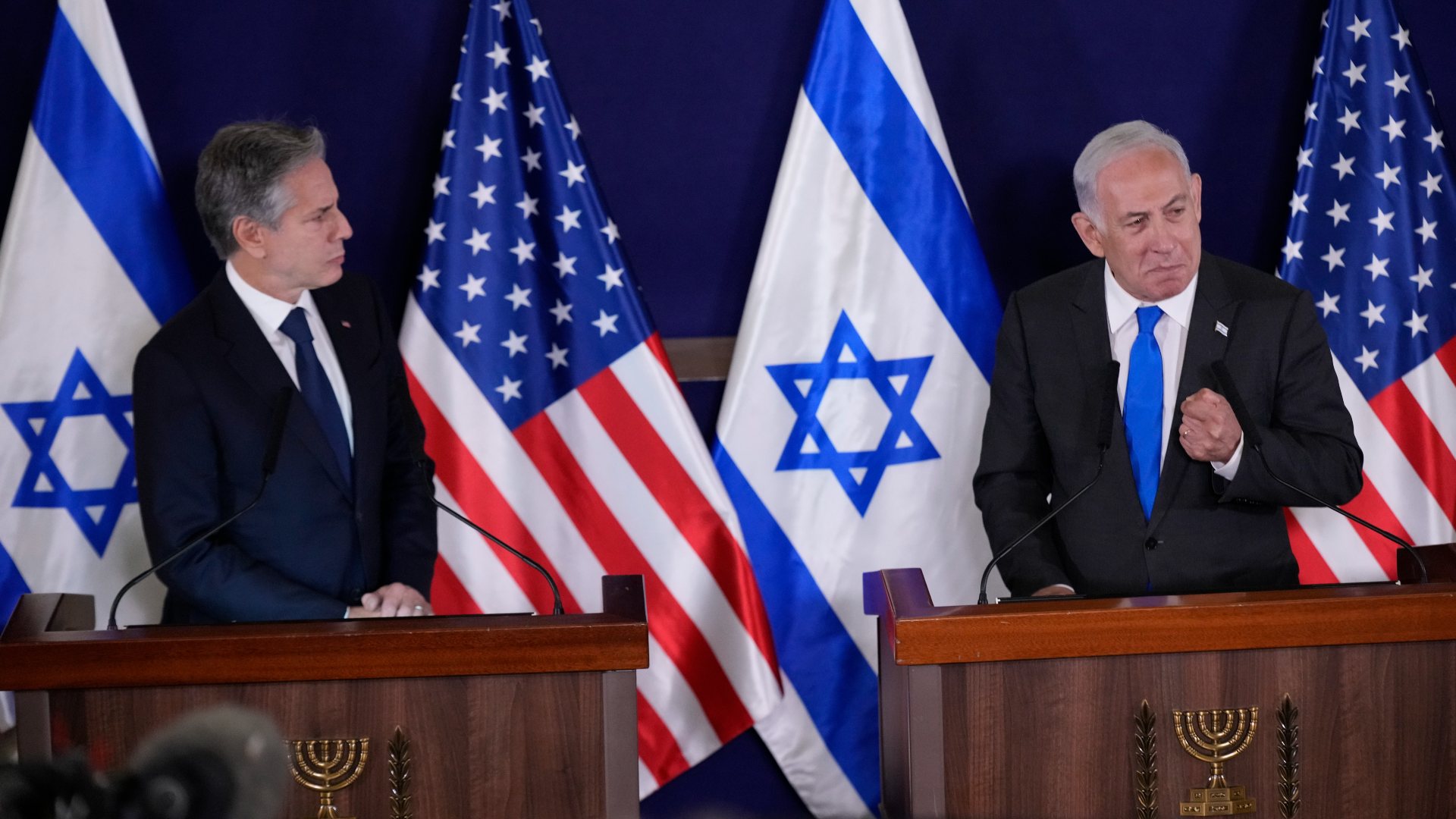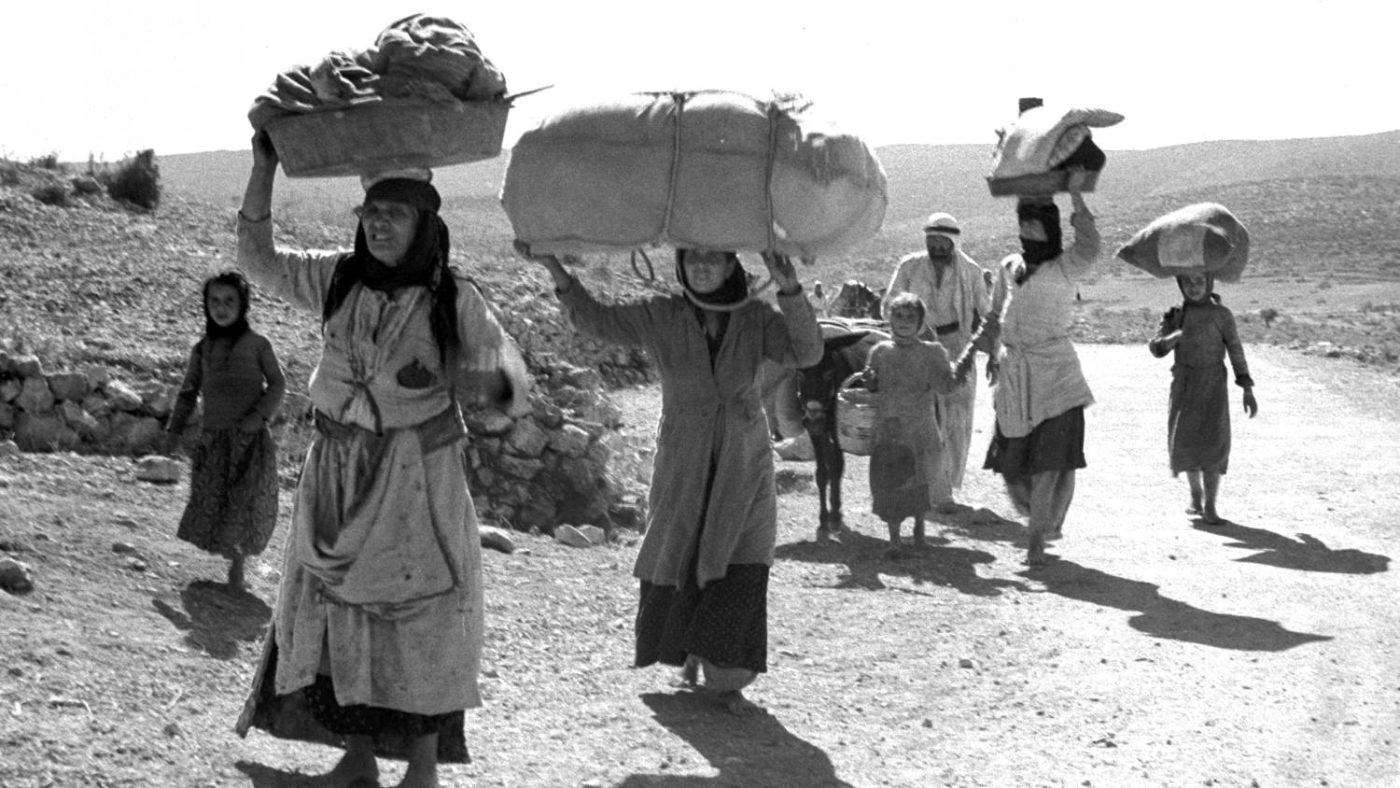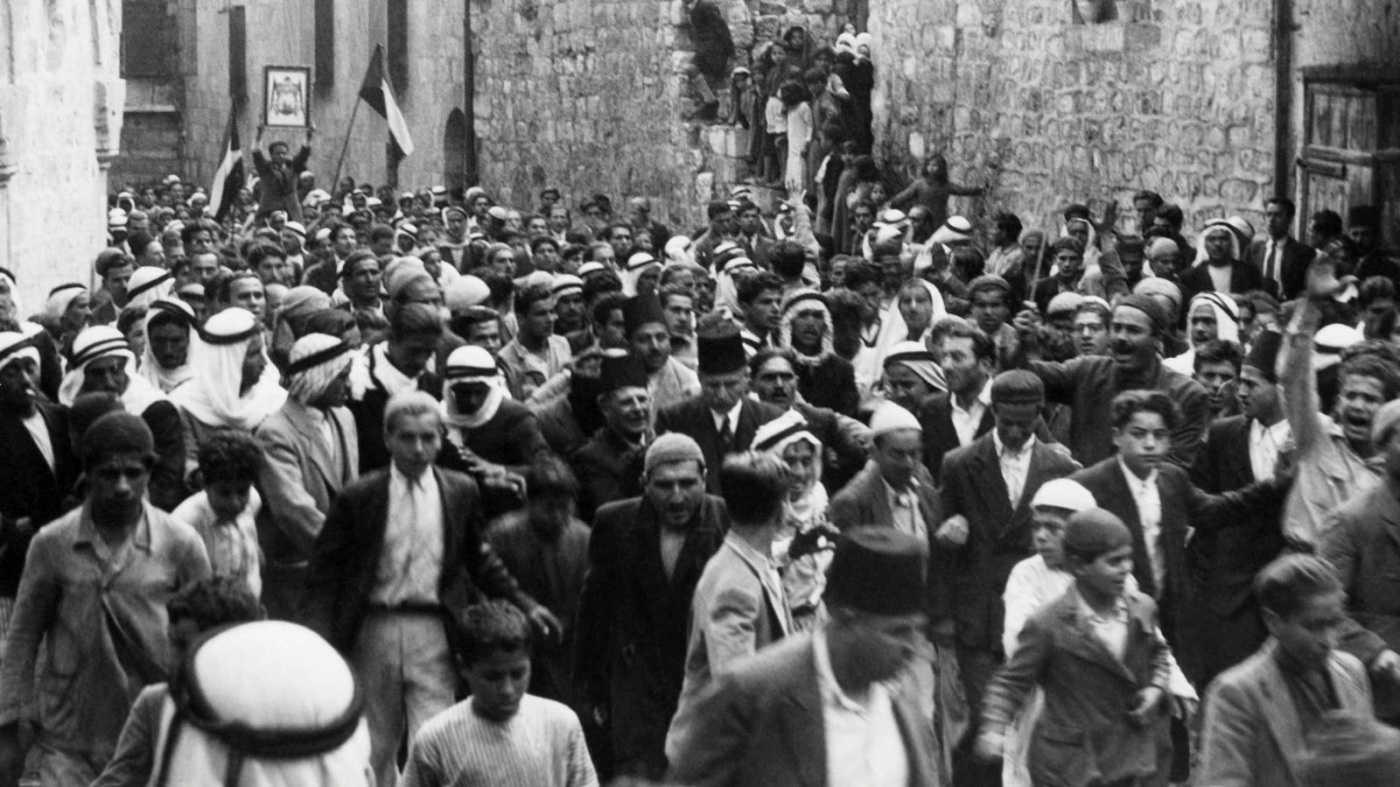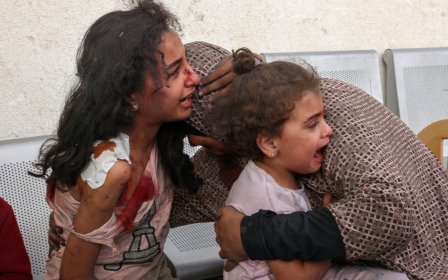Israel-Palestine war: Top Palestinian lawyer says West is enabling genocide

A leading Palestinian human rights lawyer in Israel has warned Western leaders that they are enabling genocide and a new Nakba by condoning “dehumanising” language used by Israeli leaders.
Speaking to Middle East Eye, Diana Buttu said that Palestinians in Israel, as well as the occupied territories, are facing a threat of violence with echoes of the events of 1948.
Buttu said her father’s family had been among hundreds of thousands of people who then fled from their homes never to return - and now feared that her own family could face the same fate.
Stay informed with MEE's newsletters
Sign up to get the latest alerts, insights and analysis, starting with Turkey Unpacked
“My late father witnessed and survived the Nakba when he was kicked out of his home in al-Majdal [now Ashkelon] and he was internally displaced,” said Buttu.
“He was nine, the same age as my son today. What goes through my mind is probably the same thing that my grandmother must have been thinking 75 years ago.
'I keep thinking to myself, ‘Should we pack up and leave? Maybe we'll just go for a few days.' And then I remember those people who were never allowed to come back'
- Diana Buttu
“I keep thinking to myself, ‘Should we pack up and leave? Maybe we'll just go for a few days.’ And then I remember those people who thought they were leaving for a few days and were never allowed to come back.”
Buttu was a legal advisor and spokesperson for the Palestine Liberation Organisation (PLO) who was involved in negotiations with Israeli officials during the Second Intifada between 2000 and 2005. She also holds Canadian citizenship but has lived in Israel for the past two decades.
She criticised media reporting of the war in Israel and Palestine since Saturday’s deadly assault by Hamas fighters, in which Israeli leaders have described Palestinians as “human animals” and “beasts”, and vowed to “destroy” them.
“I’ve never seen such awful reporting in my life,” said Buttu.
She said the context of the daily and deadly violence of Israel’s military occupation of Palestinian territories over decades and the mass expulsion of the Nakba had largely been ignored.
Follow Middle East Eye's live coverage for the latest on the Israel-Palestine war
“It assumes that Palestinians must simply accept what Israel has done to them and our suffering has become so normalised. To call this unprovoked is the height of dehumanisation.”
Buttu said she was concerned that journalists repeating what they were told by the Israeli army without properly fact-checking the information would lead to more war crimes.
The same applied to Western leaders condoning statements and rhetoric by Israeli officials and refusing to call for restraint, she said.
“When you do not question power and simply cheer it on, then this for sure is going to lead to mass atrocities.
“The language is incendiary, it’s violent, and I'm very well aware that isn't just in relation to Hamas, it's in relation to us as a people, as a whole. They're talking about genocide and nobody's stopping them.”
More than 1,500 people in besieged and densely populated Gaza have already been killed by waves of Israeli air strikes that have levelled residential neighbourhoods since Saturday.

Israel on Thursday ordered 1.1 million people in the north of the enclave to move south within 24 hours ahead of an expected ground assault.
Palestinians have described Israeli efforts to drive people out of Gaza as a “second Nakba”.
Buttu warned that Palestinians in Israel, who make up about a fifth of the population of 9.2 million people, are also facing a growing threat of violence.
Palestinians in the north of Israel and in mixed cities such as Haifa are living in a state of heightened tensions and anxiety.
Many fear attacks on Palestinian neighbourhoods by far-right groups and do not trust the police to protect them.
Notable Palestinian figures in the country have been labelled a “Palestinian ISIS” by some Israeli media.
University students expressing solidarity with Palestine on social media have been detained.
What is the Nakba?
+ Show - HideThe Nakba is one of the key events in modern Middle East history and one that has come to define the Israeli-Palestinian conflict ever since.
Also known as "The Catastrophe", it began in late 1947 and 1948, as the new state of Israel came into existence.
Palestine was part of the Ottoman Empire for hundreds of years until it was captured by the UK at the end of World War One (1914-18).
The League of Nations - a forerunner of the UN - gave Britain a "mandate" over Palestine after the war, which did not take into account the wishes of the native Palestinian population.
The aim of such mandates was to bring about "the rendering of administrative assistance and advice" to native populations until they were deemed capable of standing alone as independent states.
What was the problem?
The British Mandate incorporated the Balfour Declaration, sent by Arthur Balfour, the British foreign secretary, to Lord Walter Rothschild, a prominent member of the British Jewish community, in 1917.
It pledged to establish "in Palestine a national home for the Jewish people", who made up less than 10 percent of the population at the time.
During the mandate years (1923-48), the UK facilitated the immigration of European Jews to Palestine, increasing their population 10-fold, from 60,000 in the pre-Mandate era to 700,000 by 1948.
They also trained, armed and supplied Zionist groups, and allowed them a degree of self-governance.
In contrast, the native Palestinian population, which rejected European Jewish immigration and called for independence, was violently suppressed.
The number of Jews arriving in Palestine from Europe and elsewhere increased in the wake of the Holocaust, which systemically targeted Jews and others, resulting in the deaths of more than 6m people.
In February 1947, Britain announced it would terminate the mandate and turn the question of Palestine over to the newly formed United Nations.
The UN adopted a partition plan in November 1947, which divided Palestine into two parts: 55 percent would form a Jewish state, while 45 percent would create an Arab state. Jerusalem would be kept under international control.
But many argue that the plan did not take into account populations at the time.
In addition, Jewish paramilitary groups produced a strategy to control the borders of the new territory, called Plan Dalet (below).
Some of their members would go on to become key Israeli leaders, including Yitzhak Rabin (prime minister 1992 - 1995), Ariel Sharon (prime minister 2001 - 2006) and Moshe Dayan (minister of defence 1967 - 1974).
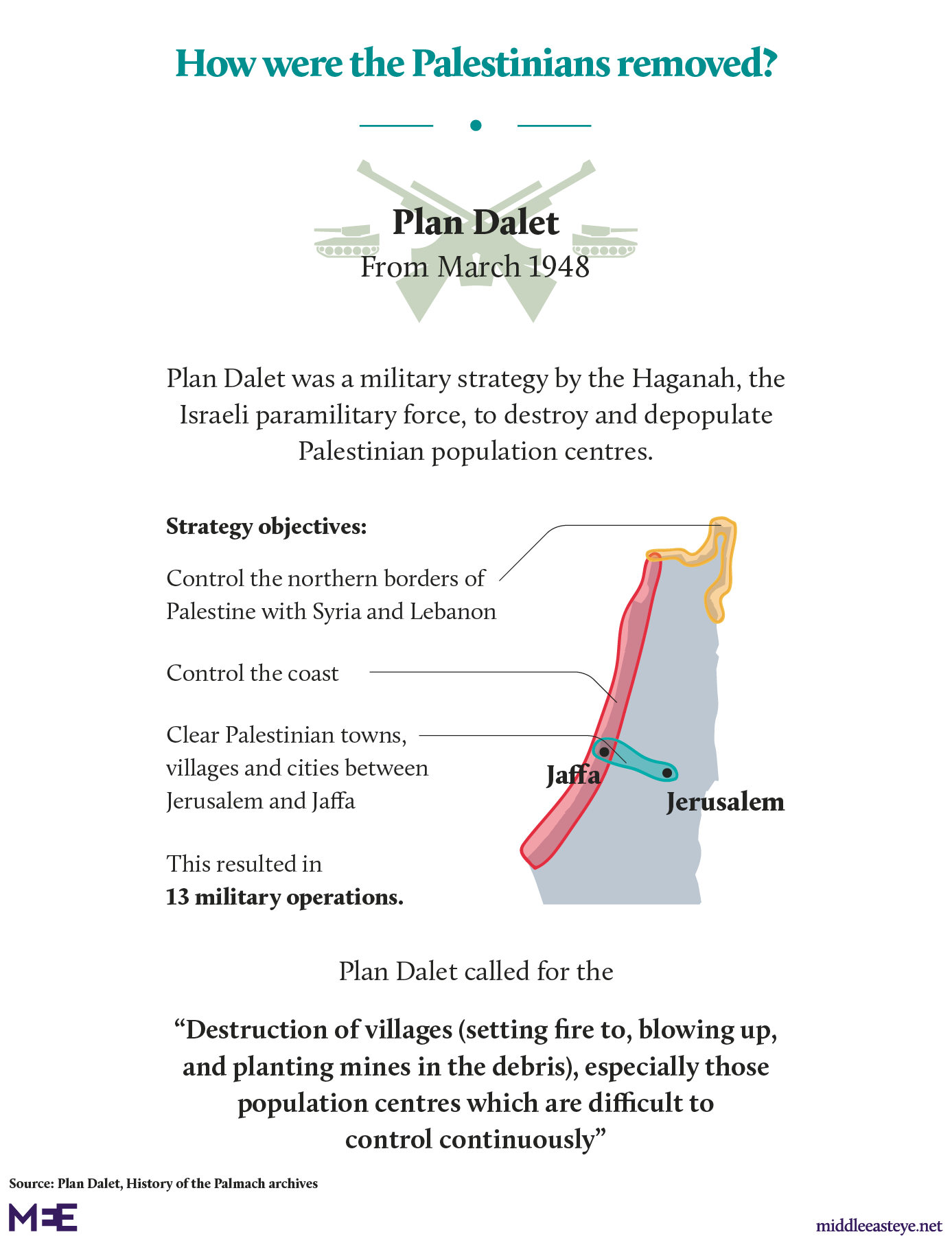
In the weeks and months that followed, thousands of Palestinians were killed or driven from their homes and communities uprooted by Jewish paramilitary groups.
Jews were also killed by Palestinian groups, if not in the same numbers.
On 14 May 1948, the State of Israel was unilaterally declared, a day before the British Mandate officially expired.
The new state had increased its share of historic Palestine from 55 percent to 78 percent. The remaining 22 percent was under Arab control.
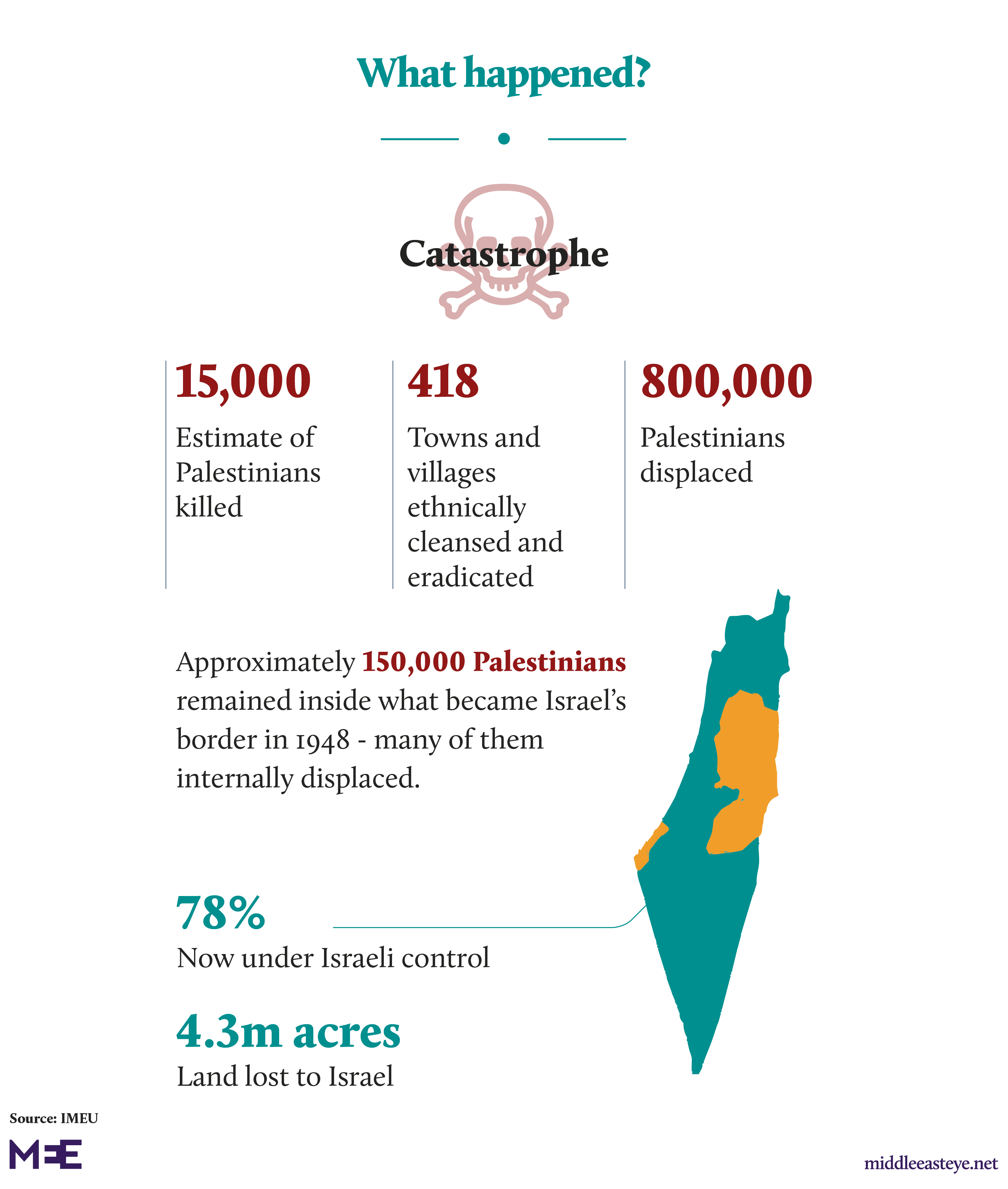
Many of the Palestinians who fled or were driven from their homes never returned to historic Palestine. Much of it is now the modern-day state of Israel.
More than 70 years later, millions of their descendants live in dozens of refugee camps in Gaza, the West Bank, and surrounding countries, including Jordan, Syria, and Lebanon.
Many still keep the keys to the homes that they and their families were forced to leave.
Nakba Day is now a key commemorative date in the Palestinian calendar. It is traditionally marked on 15 May, the date after Israeli independence was proclaimed in 1948.
Some Palestinians also observe it on the day of Israeli independence celebrations, which itself changes from year to year due to variations in the Hebrew calendar.
A journalist from the northern Galilee region told MEE: “Everyone is scared. The 1948 Arabs are in a state of fear and shock. This prevailing fear has intensified, compounded by looming threats of displacement.”
On Thursday, 7amleh - the Arab Center for the Advancement of Social Media - said it had detected a significant increase in hate speech and incitement in Hebrew with more than 19,000 examples on X, the social media platform previously known as Twitter, logged since Saturday.
'Everyone is scared. The 1948 Arabs are in a state of fear and shock'
- Palestinian journalist, Galilee
Nadim Nashif, general director of 7amleh, said: “These tweets can potentially translate into real-world attacks on Palestinian communities both in the West Bank and Israel."
In the northern city of Nof HaGalil, a campaign has sought to smear local officials affiliated with the Joint List, a political alliance of parties representing Palestinians, as terrorist sympathisers and called for them to be expelled from Israel.
“I've seen people carrying signs saying ‘expel the Arabs’. I've heard politicians talking about getting rid of Palestinians,” said Buttu.
“As a Palestinian I'm terrified about what's happening in Gaza. But I'm also very worried that it's not just going to end in Gaza, that the attacks are going to be in the West Bank and the attacks are going to be against us here too.”
Middle East Eye delivers independent and unrivalled coverage and analysis of the Middle East, North Africa and beyond. To learn more about republishing this content and the associated fees, please fill out this form. More about MEE can be found here.


